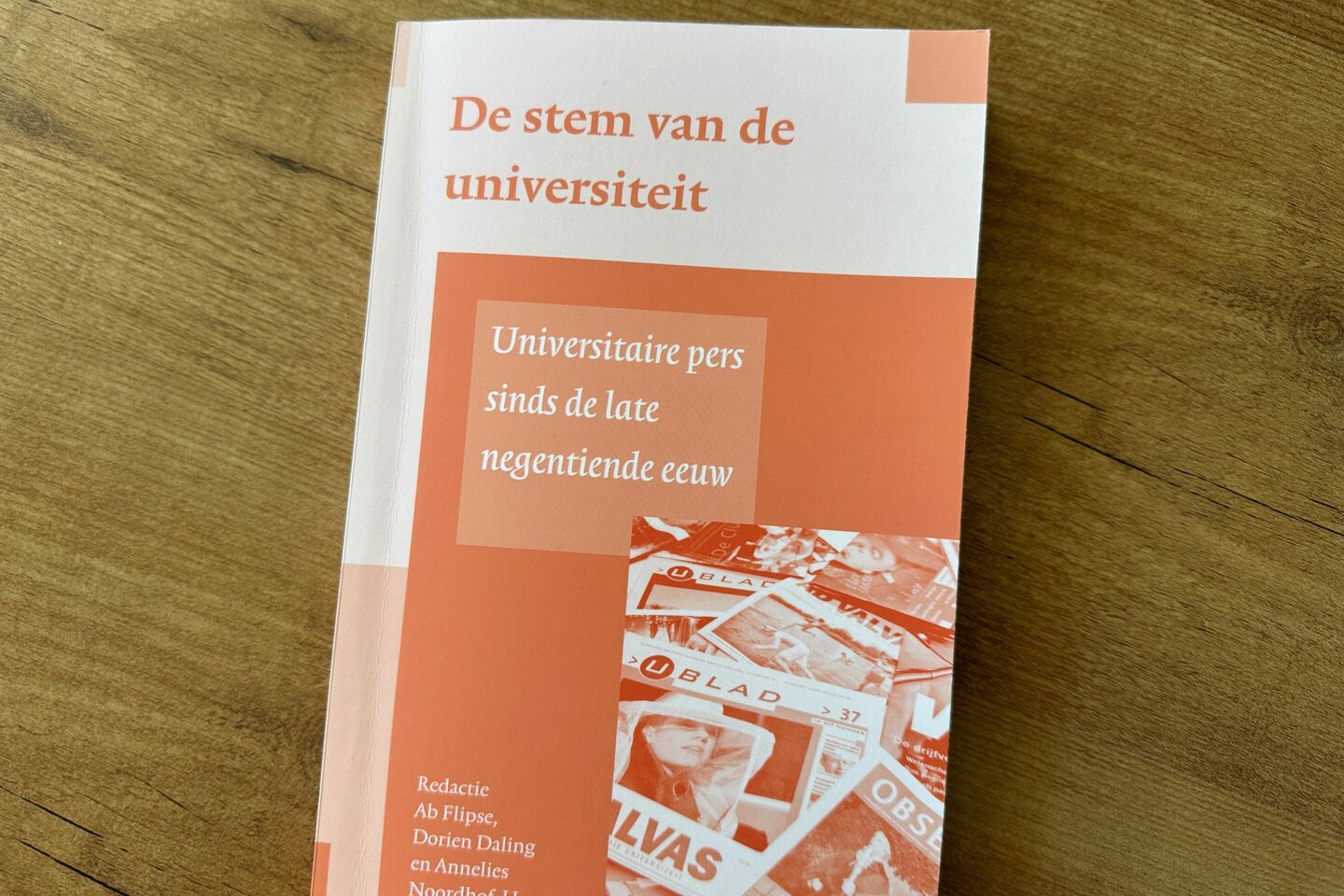
Independence of university magazines disputed for decades
The book ‘De stem van de universiteit’ gives an insight into the freedom of the press of university media over the years
A sufficient budget and a clear editorial statute are important for an independent university magazine. But good chemistry between the board and editorial team also works wonders, the book ‘De stem van de universiteit’ (The voice of the university) shows.
During the democratisation of universities in the 1970s, their newsletters developed into more or less independent media, says a book about the university press since the late nineteenth century. The common thread in their history is the tension between administrative interests and professional journalism.
Dirty laundry
Once the wave of democratization had passed and a neoliberal wind started blowing in the 1990s, universities began to operate in a more business-like manner. Administrators were less and less willing to guarantee editorial independence. Why pay for a magazine that aired the university’s dirty laundry?
Especially around open days, boards were extra concerned about reputation damage, writes Ries Agterberg, editor-in-chief of the Utrecht news platform DUB, in his contribution to the book. If a university magazine had a student vomiting or snorting coke on the front page, it would be reason enough to remove the entire print run from the stands – without consulting the editors. In Tilburg, this also happened because of an article about the Keuzegids in which the university got a bad score.
Lifestyle
But the editorial teams also chose a new course. Their usual focus on politics and administration shifted towards lifestyle, and many of the periodicals started to look like ‘glossy magazines’.
The increasing digitalisation and the decreased interest of advertisers meant that more and more magazines were only published online. The fear that this would make them less important didn’t come true, writes Agterberg. On the contrary, the different editorial teams increasingly worked together on major research articles and all of the news could now also be read outside the institution. This meant it was picked up more often by other media.
‘Simplistically critical’
All in all, the battle for independence didn’t diminish. Guus Termeer, editor-in-chief of the University Newspaper Groningen (UKrant) between 1990 and 2004, sketches several serious conflicts at various universities in his contribution. In 2012, things suddenly went awry in Groningen, when a new executive board took office and thought the editorial team at the time was “simplistically critical”.
Following a critical opinion piece by five full professors (including later Nobel Prize winner Ben Feringa) on the appointment of scholarship PhD candidates, amongst other things, the board started to close the money tap. The magazine could only appear online from then on. The relationship with the board went increasingly sour, especially when the heated discussion within the University of Groningen about a branch in China reached boiling point and the university council rejected the plans.
Action journalism
But Termeer also commented critically on the role of a number of editors who had supposedly engaged in ‘action journalism’: “Sometimes it seemed like editors wanted to be extra critical and pushed or even transgressed the boundaries to avoid the appearance that UKrant was a well-behaved company magazine.”
According to him, personal opinions and frustrations of board members played a role that shouldn’t be underestimated. When a completely new executive board took office in 2019, the relationship with the UKrant editorial team improved almost instantly.
For the Leiden university magazine Mare, it also made quite a difference who the president of the board was, writes university historian Pieter Slaman. “The continued existence of a critical weekly with a news function essentially depended on the willingness of that board to preserve it. Not all of the administrators were equally willing, especially when the image and income of the university were under pressure.”
Not safeguarded
Recent examples at the Eindhoven and Delft universities of technology, as well as at universities of applied sciences, demonstrate that the independence of higher education media isn’t safeguarded everywhere, far from it. The previous two ministers of Education regretted this, but weren’t willing to force the issue with the institutions.
Like his predecessors, the current Minister of OCW, Eppo Bruins, sees no reason to make further agreements with higher education institutions on press freedom. He made that known in a parliamentary debate on October 23rd. However, after some questions from coalition members and the opposition, he did promise the House of Representatives that he would enter into talks with the executives of the educational institutions about this topic.

Discussion